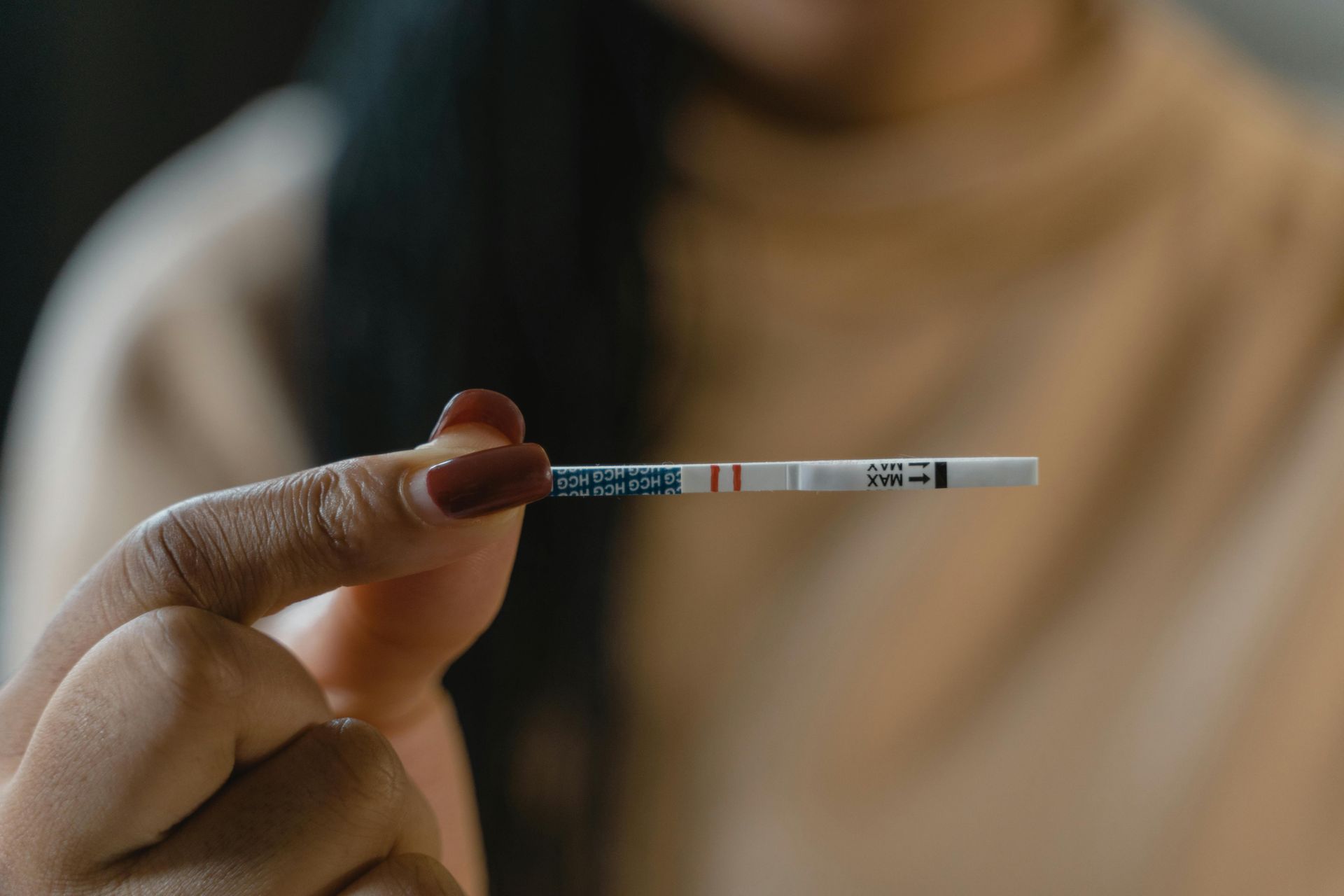What Type of Doctor Should You See for Menopause? A Michigan Guide to Finding the Right Provider
Menopause is more than hot flashes and mood swings. It’s a full-body transition that can impact your sleep, metabolism, memory, relationships, and sense of self. And yet—too often—women are told to “wait it out” or are dismissed with a prescription that doesn’t actually solve the root issue.
If you’re in perimenopause or menopause and feeling like something is off, you deserve care that’s personalized, proactive, and rooted in real science—not quick fixes.
So what kind of doctor actually specializes in menopause care? In this Michigan-based guide, we’ll walk you through the types of providers to consider (and which ones to avoid), what kind of treatments are available—from lifestyle changes to hormone replacement therapy—and how to find the right menopause doctor for your needs.
In case you’re new here…We’re Dr. Erin Hendriks and Dr. Maricela Castillo MacKenzie, the founders of Elle MD, afunctional medicine and medical weight loss clinic based in Royal Oak, Michigan. We help women move beyond surface-level care to uncover the real reasons behind their symptoms—balancing hormones, healing the gut, and restoring metabolism so they can finally feel like themselves again.
If you’ve been dismissed, told your labs are “normal,” or just want to feel heard—this guide is for you.

It’s not just menopause—it’s hormonal chaos, and you deserve real answers
Why “normal” symptoms like fatigue, bloating, and weight gain deserve a closer look.
Feeling tired, puffy, or moody all month long isn’t just an inconvenience—it’s a clue. These “common” symptoms are often your body’s way of saying: I’m overwhelmed.
- Fatigue isn’t always about poor sleep—it can be a sign of thyroid slowdown or cortisol dysregulation.
- Bloating and weight gain—especially around the belly—often point to estrogen dominance or insulin resistance.
- Mood swings or brain fog may mean your progesterone and estrogen aren’t in sync.
You’re not imagining it, and you’re not overreacting. These are real physiological changes—and the sooner you address them, the easier they are to fix.
What most doctors miss about midlife hormone shifts
Most traditional care focuses only on estrogen and progesterone levels—but midlife hormonal chaos goes way beyond that. When cortisol, insulin, and even gut health aren’t addressed, you can still feel awful even if your estrogen is “in range.”
At Elle MD, we look at how all these systems talk to each other. Because until your entire hormonal ecosystem is supported, you’ll keep feeling stuck no matter how many prescriptions you try.
The gut-hormone connection that’s often overlooked
Your gut doesn’t just digest food—it processes and detoxes hormones. When gut health is off, estrogen builds up, inflammation rises, and suddenly weight loss feels impossible.
Think of it like this: if your gut is inflamed, your hormones can’t “communicate” properly, leading to mood swings, cravings, and that stubborn belly fat. Addressing gut health isn’t optional—it’s the foundation of hormonal balance.
Most women are surprised when we talk about gut health during a menopause visit—but it’s the secret no one’s talking about.
Your gut controls how you metabolize and detox hormones. If it’s inflamed or imbalanced, estrogen builds up, causing bloating, mood swings, and stubborn belly fat. That’s why we don’t start with estrogen patches or pills—we start by making sure your gut is ready to support hormonal balance.

What doctor should you see for menopause?
Not all doctors approach menopause the same way, and choosing the right one can make or break your experience:
- OB-GYNs – Great for reproductive health, but many focus on cycles, not metabolism or gut-hormone balance.
- Endocrinologists – Specialists in thyroid, adrenal, and metabolic hormones, but often focus only on conditions like diabetes or PCOS.
- Primary care physicians – Can help rule out other conditions, but testing is usually basic and symptom-focused.
- Functional medicine doctors – (Our specialty!) We look at the whole picture: gut health, cortisol, insulin, nutrient status, and hormone metabolism to design a plan that works with your body.
- Menopause Society Certified Practitioners (like those at Elle MD) are specially trained to manage the unique hormonal shifts of perimenopause and menopause, with evidence-based therapies and a patient-centered approach.
If you feel like no one’s connecting the dots, functional medicine might be the missing piece.
Why functional medicine may be a better fit than your OB-GYN alone
Your OB-GYN may prescribe hormone therapy or birth control to “balance things out,” but if your gut, liver, or stress response isn’t addressed, you’ll likely keep struggling.
Functional medicine focuses on root-cause care: testing deeper, identifying triggers like inflammation or toxin exposure, and creating a personalized plan to help your body rebalance naturally. It’s not about silencing symptoms—it’s about solving them.
The difference between general care and root-cause hormone support and is it worth seeing a menopause specialist?
Seeing a specialist trained in hormone balance isn’t just a luxury—it’s often the key to feeling like yourself again. General care treats symptoms; root-cause support treats why those symptoms exist in the first place.
When your symptoms are impacting your daily life—when weight won’t budge, your mood feels unpredictable, or you dread getting dressed because nothing fits right—that’s your sign to stop guessing. A trained specialist can save you months (or years) of frustration by creating a plan tailored to
your body, not just generic advice.

What to expect from a functional medicine approach to menopause and hormonal imbalance
Personalized testing leads to real results
No two women experience menopause the same way—so why should their treatment look the same?
We run advanced testing like:
- DUTCH testing to map hormone levels and how your body metabolizes them.
- GI-MAP to uncover gut imbalances that may be driving inflammation and estrogen dominance.
- Comprehensive thyroid, cortisol, and insulin panels to rule out hidden metabolic roadblocks.
These tests aren’t just data—they’re the roadmap to finally understanding why you feel the way you do.
Hormone therapy, lifestyle shifts, and gut support—working together
The best treatment isn’t about choosing between hormone therapy or lifestyle changes—it’s about combining them in the right order. Hormones can be life-changing, but only when your gut, liver, and stress response are ready to process them.
At Elle MD, we often start with gut healing, blood sugar regulation, and nervous system support. Once your foundation is strong, hormone therapy—when needed—works better and feels better.
Want to know more about the safety of hormone therapy? Read our blog: Is hormone therapy safe? What women should know about weight loss & hormones.
How to know if hormone therapy is right for you
Hormone therapy isn’t for everyone, and it’s not a magic fix. It might be right for you if:
- Your symptoms (hot flashes, insomnia, weight gain) are affecting daily life.
- Your gut and liver are healthy enough to metabolize hormones.
- You’ve tried lifestyle changes but still feel “off.”
A functional medicine approach ensures that if you do start hormone therapy, your body is ready—so you feel balanced instead of overwhelmed.
How to Find the Best Menopause Doctor Near You
Finding the right doctor for menopause isn’t just about who’s closest or who shows up first on Google—it’s about choosing someone who understands you. The right specialist should listen to your story, look at the whole picture (not just your hormones), and customize your care so you actually feel like yourself again.
If you’re starting your search, Menopause Society is a great place to explore menopause and hormone specialists near you. The platform lets you filter by location, specialty, and patient reviews—making it easier to find physicians who truly understand women’s midlife health.
Trusted Menopause Specialists in Michigan
Elle MD Functional Medicine & Medical Weight Loss Clinic
Location: Royal Oak, MI
Specialty: Led by Dr. Erin Hendriks and Dr. Maricela Castillo MacKenzie, Elle MD specializes in personalized hormone care. Instead of focusing only on symptoms, we uncover root causes—gut health, cortisol balance, insulin resistance—and design individualized plans to help you feel like yourself again.
Questions to Ask Before Choosing a Provider
Before you book, ask questions that reveal whether the doctor will actually treat you—not just your symptoms:
- “Do you look at gut health, stress, and metabolism—not just estrogen?”
- “How do you personalize hormone therapy, and do you re-test regularly?”
- “What advanced tests do you run beyond basic labs?”
- “Do you also support weight, mood, and sleep changes that come with midlife?”
- “What’s your experience with perimenopause and menopause-specific certification?”
Why more women in Michigan are choosing Elle MD for menopause weight management
Our gut-first approach identifies and treats the real roadblocks so your body feels safe enough to release the weight—not fight you every step of the way. Want to understand why this matters? Check out our blog,Can hormone therapy help with weight loss? What women need to know, where we explain how hormones, metabolism, and weight are all connected.
Let’s Get to the Root, Not Just the Symptoms
Menopause doesn’t have to feel like a battle you’re losing. You deserve care that listens to your story, digs deeper than “normal labs,” and finally connects the dots between your hormones, gut, and metabolism. At Elle MD, we help women just like you stop guessing, start healing, and feel at home in their own body again.
Imagine this: waking up rested, feeling lighter in your skin, and actually seeing progress—not because you pushed harder, but because your body finally feels safe enough to let go.
Explore our https://www.elle-md.com/michigan/menopause-weight-management services and book your consultation today. The sooner you start, the sooner your body can start working
with you, not against you.
*AI Disclosure:
This content may contain sections generated with AI with the purpose of providing you with condensed helpful and relevant content, however all personal opinions are 100% human made as well as the blog post structure, outline and key takeaways.
* Affiliate Disclosure: Some of the links on www.elle-md.com may contain affiliate links meaning that we will get a commission for recommending products at no extra cost to you.
*Blog Disclaimer: Please note that reading our blog does not replace any health or medical advice consultation. Read our blog disclaimer here.

Meet the Drs.
Dr. Hendriks and Dr. Castillo MacKenzie are board-certified physicians, female, specialized, with over 10 years of experience.
Elle MD started after practicing in a traditional primary care setting together for over a decade. We grew frustrated with the current healthcare model, which places no emphasis on addressing the root cause of chronic disease. A lot of times, conventional care doesn’t even promote overall wellness!
We founded Elle MD in Royal Oak, MI, with a vision of providing this care in a compassionate and personalized way.
Download your free guide













